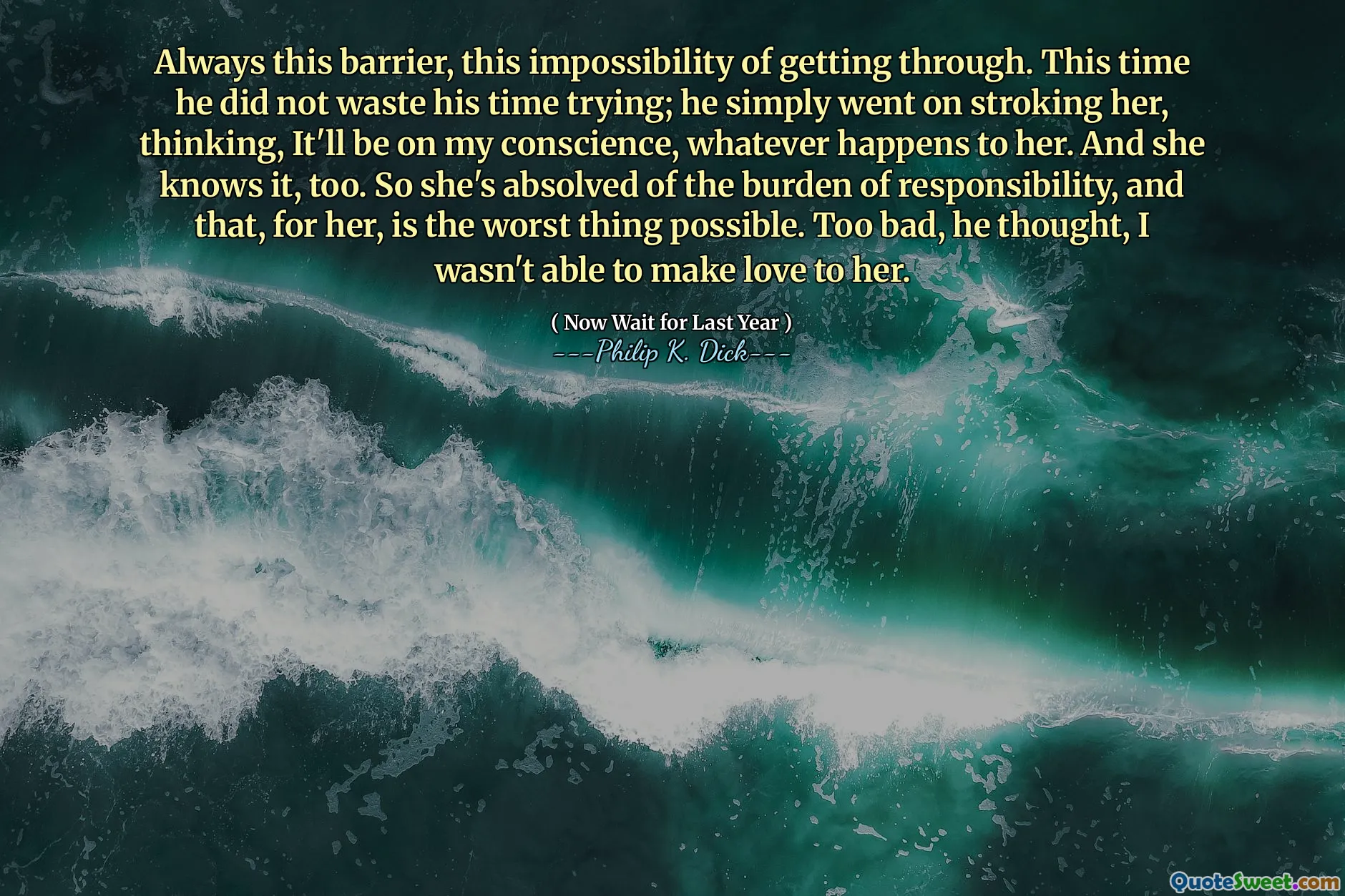
Always this barrier, this impossibility of getting through. This time he did not waste his time trying; he simply went on stroking her, thinking, It'll be on my conscience, whatever happens to her. And she knows it, too. So she's absolved of the burden of responsibility, and that, for her, is the worst thing possible. Too bad, he thought, I wasn't able to make love to her.
In Philip K. Dick's "Now Wait for Last Year," the protagonist reflects on the emotional barriers that prevent meaningful connection. He observes that despite his efforts to comfort her, there remains an insurmountable divide between them. This sense of hopelessness leads him to accept the weight of responsibility for her well-being, realizing that his inability to connect deeply adds to their struggles.
He contemplates the guilt that accompanies their relationship, acknowledging that while she might be free from responsibility, this liberation leaves her vulnerable. He recognizes that not being able to make love to her, a potential path to intimacy, is a significant loss for both of them. This scenario highlights the painful complexities of relationships shaped by emotional walls and the consequences of deep-seated feelings of inadequacy.











